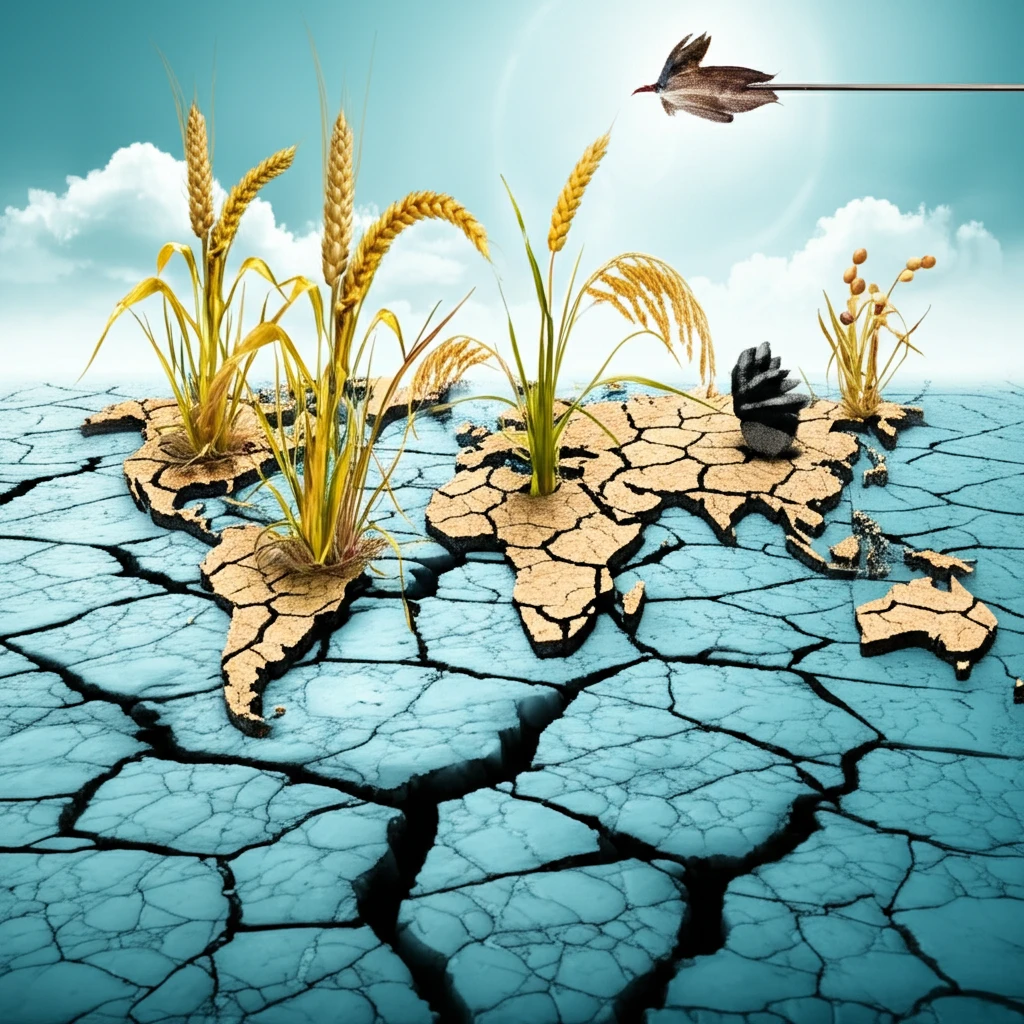
How Geopolitical Risks Are Shaking Up the Global Food Market: What Investors Need to Know
"A deep dive into the surprising impact of international tensions on food prices, market volatility, and the future of agricultural investments."
In today's interconnected world, what happens on the global stage doesn't stay on the global stage. From regional conflicts to international trade disputes, geopolitical events are increasingly impacting our everyday lives – and our investment portfolios. One sector particularly vulnerable to these shifts is the global food market.
The confluence of factors, such as widespread geopolitical instability, is creating ripple effects throughout the global food system. Understanding how these risks translate into market volatility is now essential for investors looking to safeguard their assets and capitalize on emerging opportunities. Recent research sheds light on the intricate relationship between geopolitical risks and agricultural market behavior, providing crucial insights for informed decision-making.
This article will break down the key findings of that research, exploring how geopolitical tensions are reshaping the landscape of international agricultural markets. Whether you're a seasoned investor or simply curious about the forces influencing food prices, this analysis will equip you with the knowledge to navigate the complexities and potential pitfalls of this evolving market.
Decoding the Geopolitical Risk-Food Market Connection: How International Tensions Impact Your Investments

Geopolitical risk, a term encompassing threats, realizations, and escalations of conflicts, wars, and terrorism, has emerged as a significant factor in regional and global stability. This instability directly affects the economic prosperity of nations, and has caused serious disruptions to the global food system. The factors can directly disrupt agricultural production in affected countries, severely damaging arable land, equipment, and labor forces. This can lead to decreased productivity and exports.
- Increased Market Volatility: The heightened uncertainty caused by geopolitical events triggers financial market turmoil, leading to speculative behavior in food futures markets.
- Supply Chain Disruptions: Conflict-induced border blockades and transportation disruptions restrict the cross-regional flow of food, disrupting the entire supply chain.
- Trade Protectionism: Geopolitical tensions can lead to agricultural export restrictions, further contributing to food trade protectionism and exacerbating global food insecurity.
Turning Risk into Opportunity: Strategic Investment in an Uncertain World
The global food market is inherently complex, but understanding the impact of geopolitical risks can empower investors to make more informed decisions. By staying abreast of current events, understanding macro-drivers, and utilizing sophisticated analytical tools, investors can navigate market fluctuations, maintain stable food operations, and protect global food security.
